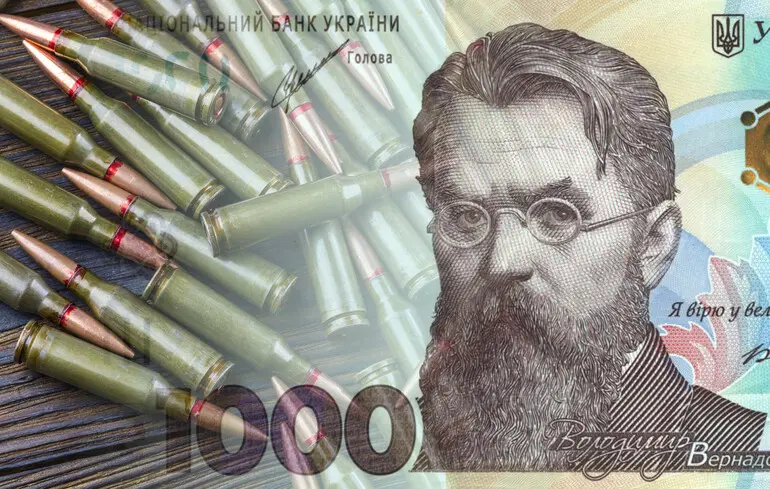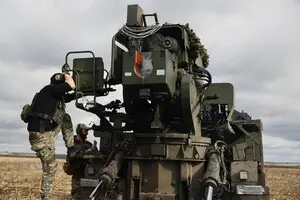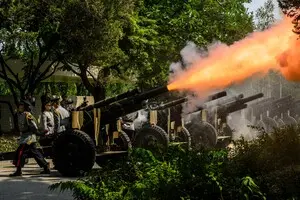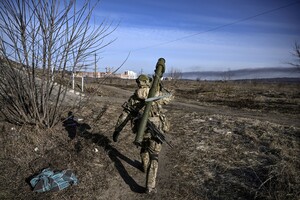Billions For Special Importers. Why Is Parliament Risking Country's Defense Capability Amid War?

The Parliament started the new year with scandalous initiatives in defense procurement. First, on January 9, the 7% fine for suppliers for late delivery of weapons and ammunition to the front was canceled (draft law No. 6013). The penalty was abolished not only for new contracts but also for all existing contracts. However, the Verkhovna Rada Budget Committee has already voted to reintroduce the fine, and the parliamentary support for this decision is pending.
And on January 10, it became known that MP Halyna Yanchenko introduced bill No. 12258, which forgives multimillion-dollar fines — interest for not supplying weapons to the front. It is expected to be passed in parliament in the coming days.
The MP tried to sell this story under the guise of “protecting arms manufacturers.”
The Anti-Corruption Action Center calls on the Parliament not to vote for the draft law No. 12258.
At present, the shortage of weapons to the Ministry of Defense alone amounts to tens of billions of hryvnias. We are talking about outstanding receivables — when the state has paid for the supply of weapons but has not received them in time. This is a huge amount of money that could have been used to provide the Defense Forces with critically needed weapons.
The abolition of the penalty allows unscrupulous suppliers who failed to deliver weapons to the frontline in a timely manner to avoid liability. We are talking about billions of hryvnias in penalties for late deliveries.
So, we have a classic conflict of interest between different social groups. It is vital for the Defense Forces to receive ammunition in time to defend the country and save the lives of the military. Instead, unscrupulous arms suppliers want to avoid penalties for delays or even failure to fulfill their obligations, which they themselves signed up for.
The task of the authorities is to clearly define whose interest takes precedence. Is it even acceptable to weigh the lives of military personnel lost due to untimely supplies of ammunition against the desire of suppliers to avoid fines for violations?
Attack on the timely supply of weapons for the frontline
Thus, draft law No. 12258 forgives multimillion-dollar fines, which are interest on the failure to supply weapons to the front. It abolishes the obligation to pay interest for the use of prepayment funds by suppliers during the period of late delivery of weapons to the front.
Arms for the Defense Forces are not just a necessity, but a matter of survival. Each delivery date specified in the contract is not just a deadline that the supplier has signed up to voluntarily. It is a critical date when the frontline awaits the arrival of weapons. After all, Ukraine, with its limited budget, meets only the highest-priority needs for weaponry. Deliveries to the front are made immediately after the shipments arrive.
Contracts for the supply of weapons are concluded directly by the Defense Forces — the National Guard, the Security Service of Ukraine, the Main Intelligence Directorate of the MoD — or through specially created procurement bodies, such as the Defense Procurement Agency of the Ministry of Defense or the Procurement Department of the State Service of Special Communications and Information Protection (SSSCIP).
The cancellation of interest means that if the delivery is delayed, regardless of how long the frontline has been waiting for the promised weapons, the supplier is exempt from paying interest for using the prepayment.
In most cases, the prepayment is 50% of the amount of expensive arms contracts. These funds are required for the purchase of components and gunpowder (in certain cases, this is a condition of delivery). Therefore, the debt of unscrupulous suppliers to pay interest (usually 3% per annum) for late deliveries to the Defense Forces is estimated at millions of hryvnias.
The parliamentary Legal Committee supported the draft law No. 12258 despite the position of the Ministry of Defense and the Ministry of Finance. The Ministry of Finance and the Ministry of Defense emphasized that the abolition of interest payments only increases the risk of late deliveries by unscrupulous suppliers.
If interest payments are canceled, suppliers will lose their motivation to deliver weapons on time. At the same time, the Defense Forces will lose an effective tool to influence unscrupulous suppliers and the opportunity to receive funds in the form of interest for using prepayment.
Both agencies have emphasized that the abolition of int
erest payments will reduce state budget revenues, meaning that the Defense Forces will not receive compensation for late deliveries to the front.
It is noteworthy that the head of the SSSCIP, Oleksandr Potii, does not object to the draft law on the abolition of interest payments, even though he is in charge of the SSSCIP's procurement department, which purchases drones worth tens of billions of hryvnias for the Defense Forces. This means that they refuse to receive interest for using the prepayment during the delay. This was probably the advice given to Mr. Potii by his first deputy for financial affairs, Rostyslav Zamlynskyi, who approved the infamous contracts of the Defense Ministry with “eggs worth 17 hryvnias each.”
Importantly, the rule is written in such a way that it exempts suppliers from paying interest even on previously concluded contracts. Thus, draft law No. 12258 “forgives” the obligation to pay the Defense Forces multimillion-dollar compensation for undelivered weapons.
Previous attack: what happened to the abolition of 7% fines for late deliveries
On the day before the vote, the same MP Yanchenko introduced Clause 4 of the transitional provisions of the draft law No. 6013 “On Peculiarities of Regulation of Business Activities of Certain Types of Legal Entities and Their Associations in the Transitional Period,” which abolished the 7% penalty.
On the day of the vote, we warned the parliament about the danger of abolishing the 7% penalty for late delivery of weapons to the front. However, the parliament supported Yanchenko's position: between the country's ability to defend itself and the super-comfort of dishonest suppliers, the latter was chosen.
Yanchenko proposes to grant exemption from paying fines not to domestic producers, but problematic special importers and intermediaries. The Spetstechnoexport state foreign trade enterprise alone owes UAH 6 billion in arms supplies. During the full-scale war, special importers were notable for managers with half a million dollars in their sofa and almost twice the cost of ammunition. The Ministry of Defense withdrew UAH 1.5 billion through an intermediary (e.g., Lviv Arsenal LLC) without receiving any ammunition.
In turn, according to our information, Ukrainian defense manufacturers are trying to deliver weapons in a timely manner or confirm force majeure (or a significant change in circumstances that did not exist before the contract was signed), as provided by law.
What is behind the canceled fines?
It is worth noting that suppliers have an additional 30 days from the date of delivery specified in the contract to resolve any potential problems. A penalty of 7% of the contract value is imposed only in cases where the problems could not be resolved within this period and there is no confirmed force majeure (or a significant change in circumstances that did not exist before the contract was concluded).
The purpose of the penalty is not to punish, but to motivate the supplier to specify a realistic delivery time in the contract.
The supplier must be aware of the seriousness of fulfilling the terms of the contract, as the country's defense capability depends on it. In case of failure to fulfill the conditions for the delivery of weapons within the specified timeframe plus an additional 30 days, the Defense Forces receive compensation.
Who is behind the rule on the abolition of fines? Only facts and figures
According to the Defense Procurement Agency, the country's largest arms buyer, Spetstechnoexport, a special importer, has a record amount of debt to pay 7% of fines — about UAH 1.5 billion.
This amount alone would be enough to purchase about 10,000 Mavic systems for the frontline. We will leave the calculation of the total amount of non-delivery of weapons by this special importer to law enforcement institutions.
At the moment, MPs have taken the initiative to resolve the situation with the abolition of the 7% fine for late defense supplies. We are grateful to Speaker Ruslan Stefanchuk, Davyd Arakhamia, Anastasiia Radina and Roksolana Pidlasii who have actively taken up the issue of returning penalties for delays in deliveries to the frontline. Hopefully, we will be able to consolidate this groundwork as soon as possible by voting in the parliament.
Summing up, domestic arms manufacturers usually do not have such huge debts as we mentioned above. Manufacturers try to make deliveries on time, but if there is a force majeure (or a significant change in circumstances), they prove it and try to postpone the delivery.
We expect that the parliament will not vote for the draft law No. 12258, which has very high risks for the timely receipt of weapons by the Defense Forces and, ultimately, for the country's defense.
The changes proposed by MP Yanchenko will only benefit unscrupulous suppliers. To those MPs who will continue to support initiatives that undermine the country's defense capability during the war, we guarantee that we will make the name of every MP who chooses to harm the Defense Forces known throughout Ukraine. Voting for draft law No. 12258 is on this list.
Please select it with the mouse and press Ctrl+Enter or Submit a bug

















 Login with Google
Login with Google